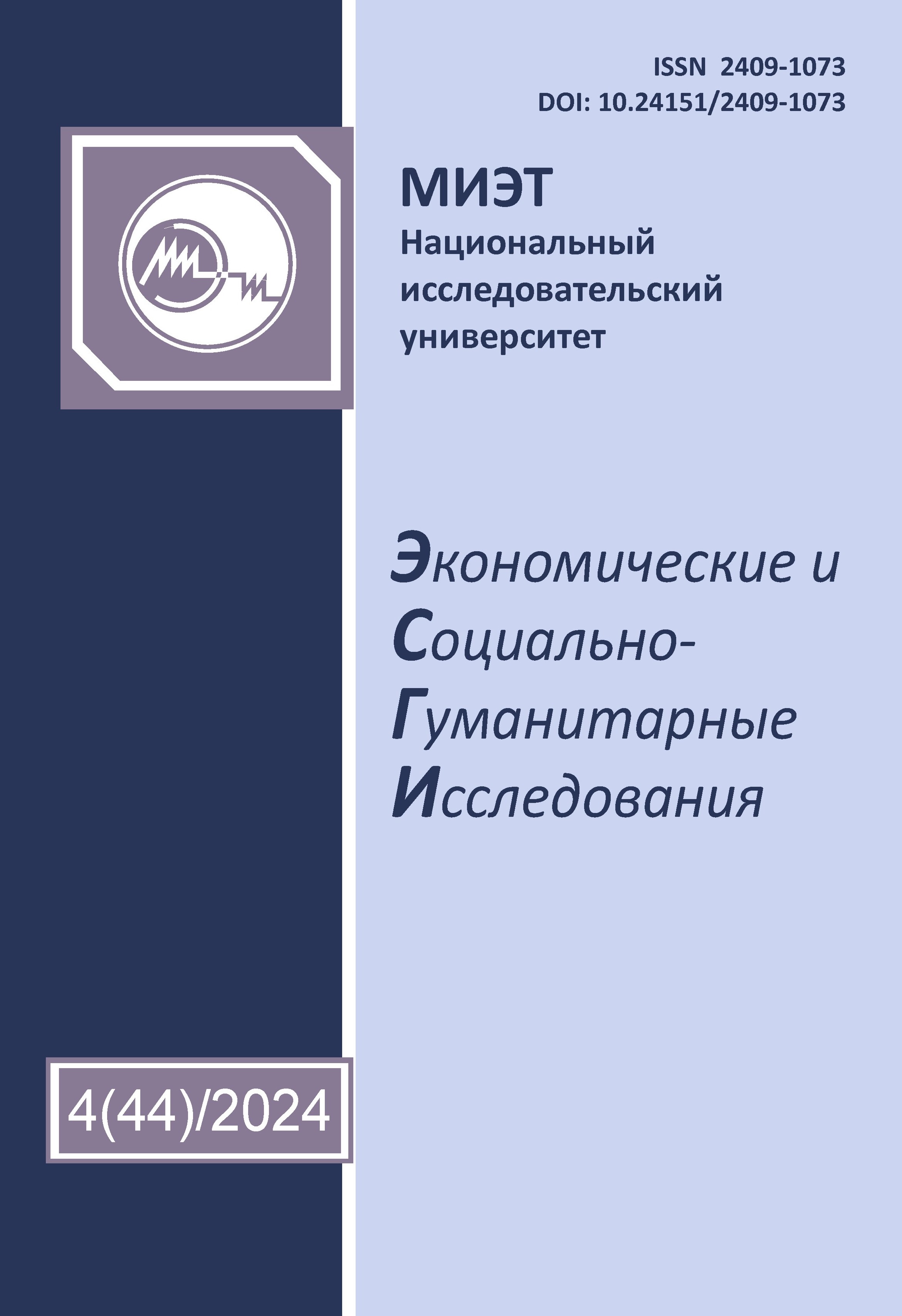employee
Kuzbass State Agrarian University named after V. N. Poletskov (Educational Technologies Department, Professor)
employee
Kemerovo, Russian Federation
UDC 004
In this work, the author considers from the standpoint of philosophy the transformation of ethical instruments in the realities of digitalization. The features of changes in the perception of categories of good and evil under the influence of digitalization processes are analyzed. The main markers and trends that negatively affect the social fabric are identified. The effects of digitalization that limit the full-fledged existence of the individual are given. The virtual reality impact on changes in the structure of personality by spheres is determined. The risks and threats of information overload have been identified.
digitalization, ethics, society, evil, information, human, morality, communication
1. Berdyayev N. A. Philosophy of Creative Work, Culture and Arts. Vol. 1. Moscow: Iskusstvo; Liga, 1994. 542 p. (In Russian). 2 vols.
2. Grineva O. A. Transformation of Human Existence under Conditions of Present-Day Knowledge Society: Socio-Philosophical Analysis: diss. for the Cand. Sci. (Philos.). Krasnoyarsk, 2017. 154 p. (In Russian).
3. Zeveleva I. A. “To the Problem of the Person Identity in the Information Society”. Izvestiya Yugo-Zapadnogo gosudarstvennogo universiteta. Seriya: Ekonomika. Sotsiologiya. Menedzhment = Proceedings of the Southwest State University ser. Economy. Sociology. Management 7.1 (22) (2017): 245—250. (In Russian).
4. Ioseliani A. D. “Specificity of Human Everyday Life in the Digital World”. Manuskript = Manuscript 13.4 (2020): 115—119. (In Russian). https://doi.org/10.30853/manuscript.2020.4.23
5. McLuhan Marshall. The Gutenberg Galaxy: The Making of Typographic Man. Toronto: Univ. of Toronto Press, 1962 p. 294 p.
6. Molchan E. M. “The Impact of Digitalization on the Formation of Spiritual and Moral Values of the Subjects of Interaction in Global Age”. Vestnik Moskovskogo gosudarstvennogo oblastnogo universiteta. Seriya: Filosofskiye nauki = Bulletin of Moscow Region State University ser. Philosophy 2 (2019): 55—65. (In Russian). https://doi.org/10.18384/2310-7227-2019-2-55-66
7. Neronov A. V., Neronova M. Yu. “Peculiarities and Problems of Personality Identification in the Modern World”. Sovremennye issledovaniya sotsialnykh problem = Modern Studies of Social Issues 14.3 (2022): 74—91. (In Russian). https://doi.org/10.12731/2077-1770-2022-14-3-74-91
8. Osintseva N. V., Muratova I. A. “Transformation of Ethical Values under the Conditions of Digital Technologies Development”. Manuskript = Manuscript 13.1 (2020): 171—175. (In Russian). https://doi.org/10.30853/manuscript.2020.1.35
9. Nekrasov A. S., Nekrasov S. I., Nekrasova N. A., Klepatsky V. V. “From the ‘Information Man’ to the ‘Digital Man’ ”. Vestnik Universiteta Rossiyskoy akademii obrazovaniya 3 (2019): 4—10. (In Russian).
10. Petrova E. V. Human in Information Environment: Socio-Cultural Aspect. Moscow: Institute of Philosophy of RAS, 2014. 135 p. (In Russian).
11. Romanova T. V. Ideologemes and Axiologemes of Russian Linguistic Consciousness as Reflections of Constants and Dynamics of National Mindset: monograph. Nizhny Novgorod: DEKOM, 2019. 120 p. (In Russian).
12. Tatarintseva Yu. O. “Culture of Consumption as Social Category”. Vestnik Tambovskogo universiteta. Seriya: Obshchestvennyye nauki = Tambov University Review ser. Social Sciences 2.3 (7) (2016): 66—70. (In Russian).
13. Frolov I. T., ed. Philosophical Dictionary. 7th ed., rev. and upd. Moscow: Respublika, 2001. 719 p. (In Russian).









